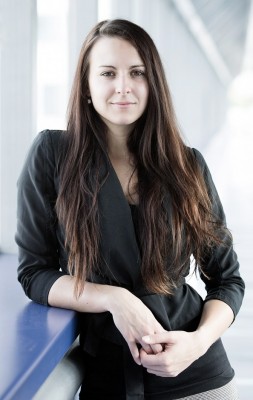
Taking a bit of time out of Veronika Jelínková’s busy lifestyle in global innovation hub, San Francisco Bay Area, we caught up with the Czech economist on launching Metalearners.com and studying at CERGE-EI.
Veronika, who studied the MA in Applied Economics at CERGE-EI after graduating from the University of Aberdeen in Scotland, recently co-founded Metalerners.com, a movement that connects people who apply metalearning in their work. Metalearning is simply the art of learning anything smarter. It is a complex know-how that includes various areas such as emotional intelligence, biohacking, pareto rule, neuroscience, psychology, biology and other cool fields that help people unlock their superpowers.
Able to practice what she preaches, Veronika managed to spare some time to give us a fresh update about her project and the importance of her academic experiences.
What is the concept behind Metalearners.com and how does your background in economics play a role in its development?
The concept of Metalearners is to connect people from all over the world who apply metalearning in their work. Those people are mainly ultramarathoners, world-known freedivers, life coaches, mindfulness teachers, experimenters. They look at a human in a holistic and complex way. This movement is about to join the revolution in education by using our time wisely and efficiently. In other words, you can learn anything in much shorter time by knowing how. Metalearners is more than about metalearning though. Its also about love, values, mindfulness and stillness.
Data-driven Changemakers is an initiative of the redesigned MA in Applied Economics program that teaches students to apply economics in a way that will help develop a more productive, practical and socially oriented society. In your view how will these objectives add value, both to students and the wider community, in comparison to the conventional economics degree?
I think the most valuable thing this program gave me was a different way of thinking about the world. I learned to ask the right questions, I learned to think more critically. I found my values, what I do want and what I do not want. When it comes to hard skills, I understood econometrics, statistics and the importance of corporate finance. We are living in a world of information and big data – it is crucial that one has skills that can help them not to get lost in the chaos of the information era.
New modules such as the Interventions module and Group Client Projects require students to do fieldwork, test ideas in the lab and work with industry professionals. What do you think are the most important skills students’ gain from such experiences?
Feedback, experience itself, practice, inspiration and much more. The most important one is to work with industry professionals though – in my opinion. I also think that it can give inspiration and courage to some who are brave and responsible enough to start their own company or projects. It can give them the path that they want to follow later. Definitely better than just writing equations over and over again.
Human-centered design is at the heart of the program, as a co-founder of several projects how do you think this strategy changes the everyday approach to work tasks and the effectiveness of solutions?
If I had the know-how I have now, I would save so much time, money and energy. This skill is even more important than to understand data. You might be excellent in analyzing or doing research but if you are not able to sell your ideas, you are dead in this world. Teaching and practicing soft skills is not only good for business later but also for personal growth and that is even more important. This program gives you both. Soft skills + hard skills. That is very rare to have.